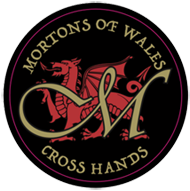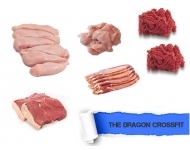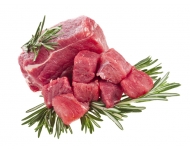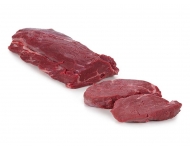March 25--For the past month, Phil Stevenson has been eating like it's 10,000 B.C.
He says his new diet of meats, fish, eggs, fruits and nuts -- all basic menu items during the Paleolithic era of thousands of years ago -- has the 32-year-old business owner weighing 13 pounds less.
"I feel great," said Stevenson, who lives in Westchester and exercises frequently. "It's given me so much more energy."
Known as the Paleolithic Diet, or "Caveman Diet," eating the way prehistoric humans did is becoming a popular way to get fit. The diet, founded by scientist Loren Cordain in 2001, involves eliminating foods like refined carbs, white rice, potatoes, dairy, sugar and salt from meals.
It is based on the theory that the human body was never designed to consume processed food in the first place.
"You pretty much have to pretend that the agricultural revolution never happened," said Michael Osuna, co-owner of a chain of CrossFit gyms, or "boxes" in South Florida. "We're eating the way our ancestors did."
The diet, says Osuna, has gained a steady following in the CrossFit community because many of its members end up seeing the results when they look in the mirror.
"It's really taken off. CrossFitters love it because of its nutritional value," Osuna said.
FIU student Dannisa Henry, 22, took on a Paleo diet as a challenge at her CrossFit program. She cut dairy and wheat from her eating habits and said she lost 3 percent of her body fat within the first 30 days.
"It was pretty hard to transition into this eating style. I wanted to have cheese and bread all the time,'' said Henry, who became accustomed to the plan after two weeks and now says she feels more energized.
Sheah Rarback, a registered dietitian on the faculty of the University of Miami Leonard M. Miller School of Medicine and Miami Herald columnist, said the diet is rooted in healthy eating patterns of our hunter-gatherer ancestors. Their diets were rich in fruits, vegetables, roots, legumes, nuts and seeds. The foods were organic and generally eaten within hours of being gathered.
But she notes that we tend to eat fattier meats than they did: "The emphasis on vegetables and fruits, fiber rich foods and lean protein sources are strengths of the paleo diet. It is important to remember that our ancestors ate low-fat wild game and fish, not fat-filled prime rib. I recommend thinking of paleo as a lifestyle that includes not only minimally processed food but also paleo-style exercise.''
And, she noted, their diets were rich in omega 3 fatty acids, found in fatty fish such as salmon, tuna and anchovies, along with walnuts, flax and olive oil. Omega 3s have been found to reduce the risk of heart disease and improve the brain's cognitive functioning.
Some dietitians, however, hesitate to support a diet that cuts out major food groups. And, they add, it's important to supplement the diet with calcium and vitamin D, which are essential to bone health and which you lose when you cut out dairy products. (Calcium, however, is found in leafy greens such as spinach and kale, soy, tofu and fish like salmon and sardines.)
"I'm all for simplifying what you eat and leaving out foods that are high in fat, but there is no diet that is truly sustainable," said Fatma Huffman, professor and chair of the Dietetics and Nutrition Department at Florida International University.
Huffman said that while cavemen spent a large portion of their lives searching for and gathering food, many never survived to the age of 40.
"That way of life is unrealistic in today's world," Huffman said.
In Miami, where rice and beans is a staple of the diet in the Hispanic community, Osuna says eating like a caveman can be challenging at first for many.
"Many people have difficulty following it because they have to change their entire lifestyle," he said.
Foods like organic vegetables and fruits, wild-caught fish and grass-fed meats and wild game resemble foods closest to our ancestors.
Lanelle Phillips is the president of Clean Foods, a Miami-based business that prepares and delivers healthy meals to homes. Three months after starting her company in 2011, Phillips began offering a "Paleo Diet" plan.
"People call it the caveman diet but it's actually just about eating natural and whole food," said Phillips, who said more of her customers are choosing to "go paleo."
The plan offers garden salads with salmon and baked stuffed chicken with butternut squash, apple and wild mushrooms.
"I definitely don't think it's a fad," said Minela De La Valle, a 38-year-old office manager from Coral Gables who eats paleo meals from Clean Foods. "It's made me realize how bad sugar can be for your body and that the proper way to eat involves moving away from that."
___
(c)2013 The Miami Herald
Visit The Miami Herald at www.miamiherald.com
Distributed by MCT Information Services
Your shopping box is empty!

















